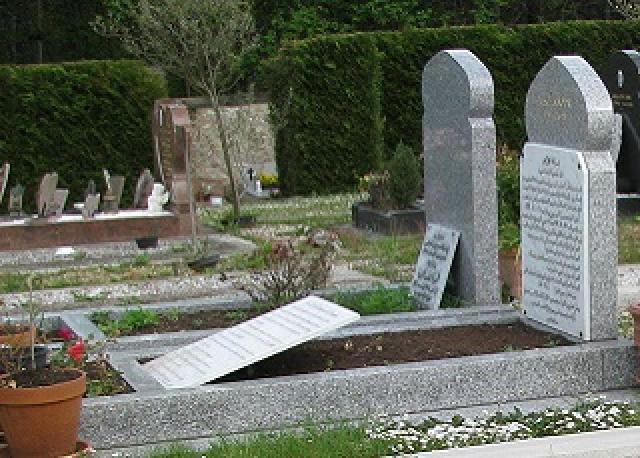The contact of the Muslim community in France with the burial sites has changed over the past year, with the number of deaths due to the pandemic and the impossibility of repatriating the remains to the country of origin. The expansion of Muslim squares has become an urgent problem for Muslims in many cities. But the maintenance of these burial places is sometimes forgotten.
Since last January, a collective of young people has organized themselves on a voluntary basis to clean the Pont de Justice cemetery in Nîmes and take care of the maintenance of the graves, especially those of the Muslim ones. At the origin of this spontaneous initiative, Fouad, Sofian and Megdi did not imagine that it would take so large. Today, there are more than fifty taking turns, counting on the mobilization of the entire local population, apart from religions and beliefs.
It all started with personal experience. Last summer, Sofian lost his grandmother. Other friends and acquaintances have buried loved ones who died amid the health crisis linked to the novel coronavirus pandemic. “On my way to the cemetery, which is in my neighborhood, I noticed that some graves were abandoned. Several had sagged too much because they had been there for 50 or 60 years, without real maintenance, ”said Wednesday to Yabiladi Sofiane, one of the launchers of the initiative. Being followed on social networks, he decided to take this opportunity to make a call and take care of it with his friends.
An action that should spread elsewhere
For now, “more than 350 graves have been cleared and more will follow,” he says. The action was quickly supported by residents, including entrepreneurs and owners of large vehicles, who kindly lent their trucks and provided logistical assistance. In a very short time, Sofiane and her friends were able to collect “20 tons of earth”, which will be used to cover the collapsed tombs and to rehabilitate the crumbling ones.
Due to the measures linked to the state of health emergency, access remains reduced in cemeteries. The collective is thus organized by constituting teams of six volunteers, who take turns to ensure the continuity and sustainability of this action.

In addition to “restoring the image” of communities often stigmatized according to current events and controversial debates, this action is of great public utility. “We are not an association, but a group of people united around a voluntary action of which we have seen the interest and which it suffices to reproduce where there are cemeteries and forgotten graves, whether in France or even in our Maghreb countries, ”Sofian tells us.
–


